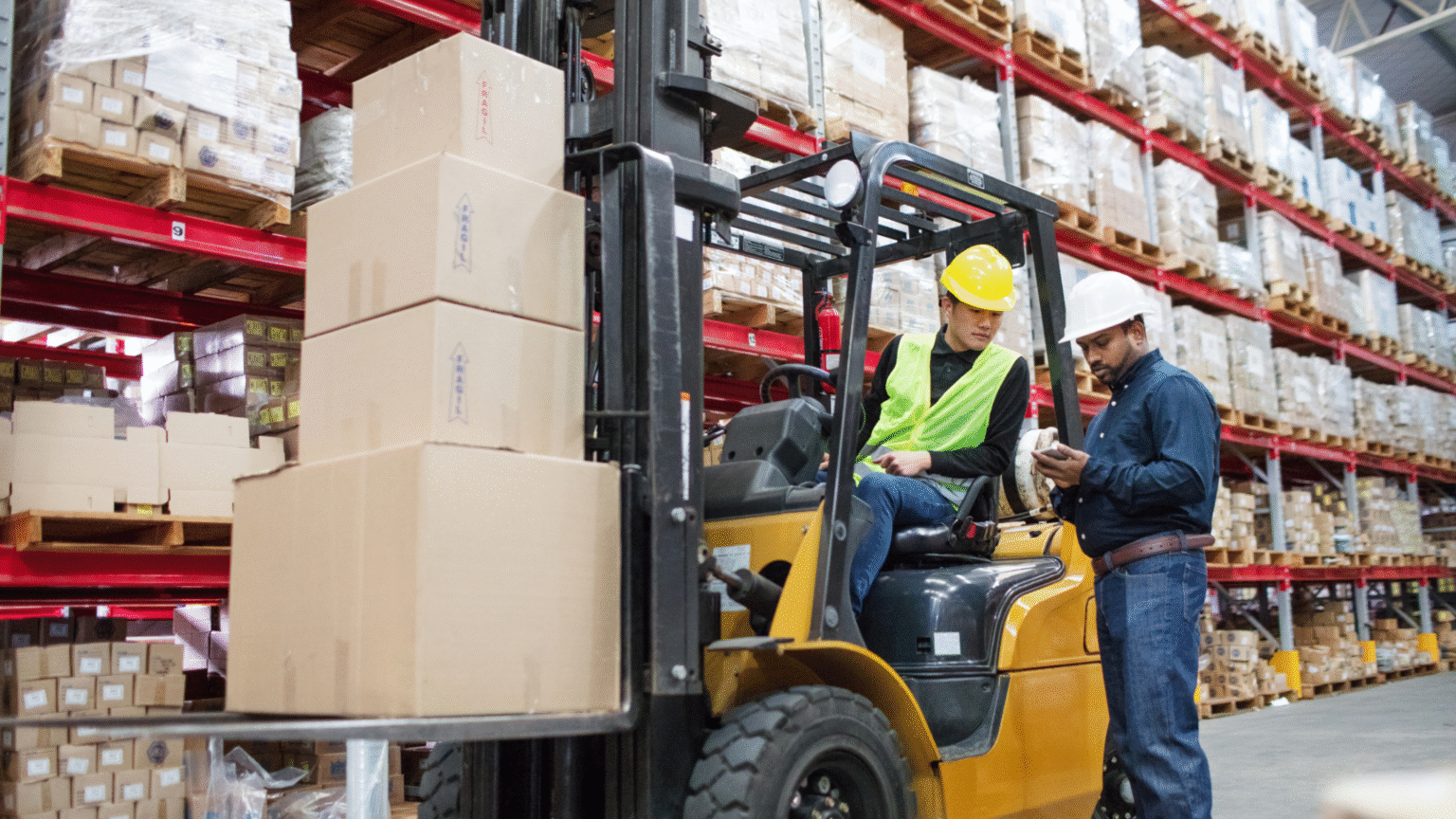Warehouses run on people, and often, one of the most overlooked roles in that space is the forklift operator. You know, the person weaving between tight aisles, lifting thousands of pounds of goods like it’s no big deal.
But here’s the thing—what they do is a big deal. One mistake and it’s not just a dented shelf, it’s a serious safety hazard.
Ever walked into a warehouse and felt like things were either totally in sync or completely chaotic? A lot of that comes down to how well forklift operator responsibilities are understood—and actually followed.
So let’s break it down in a way that’s not just another boring checklist but something you can relate to, whether you’re in the warehouse every day or managing one from the sidelines.
Who Are Forklift Operators?
Forklift operators aren’t just “drivers.” They’re the ones who make sure your packages get where they need to be, your pallets don’t fall over mid-transit, and your warehouse doesn’t turn into a disaster zone.
They operate heavy-duty machines that need focus, skill, and a whole lot of responsibility. And here’s where it gets interesting: a good forklift operator is more like a warehouse ninja. They anticipate problems before they happen. They know their space, their loads, and their timing.
Why Are Forklift Operator Responsibilities So Critical?
Let’s not sugarcoat it, forklifts can be dangerous if not handled correctly. And no, that’s not just a dramatic line. We’re talking injuries, property damage, missed shipments, and delayed timelines.
But forklift operator responsibilities are what keep that from happening. Daily inspections. Safe load handling. Knowing when the machine’s acting up. Communicating clearly when passing blind spots. That stuff might sound small, but it adds up.
They’re doing mental math on load weight, calculating clearances, and watching out for a coworker who might accidentally step into their path. The level of awareness they need is intense.
Common Mistakes Forklift Operators Should Avoid
Okay, here’s where we talk about the stuff that often goes wrong. And look, this isn’t finger-pointing. It’s about real talk, because mistakes happen—but knowing them means avoiding them next time.
Skipping the Pre-Shift Inspection
Think of this like brushing your teeth. You might skip it once and nothing bad happens—but do it enough times and well, things start falling apart. Same with skipping checks on brakes, tires, and fluid levels.
Overloading
We get it. You want to get the job done. But pushing the load limit isn’t helping anyone. It’s just setting up a potential tip-over, and nobody wants to be the guy who caused a pile-up in aisle 4.
Speeding or Taking Sharp Turns
You’re not racing. You’re managing. Taking corners too fast or flying down an aisle to save 10 seconds? That’s how accidents happen.
How Warehouse Managers Can Support Forklift Operators
Let’s shift gears. Because this isn’t all on the operator. Managers, you’re up.
You can’t expect operators to carry the weight of safety without backing them up. That means:
- Proper training (and refreshers, because things change)
- Functional equipment (nothing more frustrating than a janky forklift)
- A safe environment (clear paths, good lighting, updated safety signs)
- Open communication (where someone can say “hey, this isn’t safe” without getting side-eyed)
Conclusion
Here’s what it all comes down to: forklift operator responsibilities aren’t just about ticking boxes. They’re about people. About showing up, doing the job right, and making sure everyone goes home in one piece.
At PRG Equipment, we understand the importance of having the right equipment for safe warehouse operations. Our team is here to help you buy used forklifts that meet your specific needs, ensuring the safety and efficiency of your team.
FAQ’s
What exactly are forklift operator responsibilities?
Ans: They include daily inspections, safe operation, load management, clear communication, and reporting any issues. Basically, it’s about keeping things smooth and safe.
How important is certification?
Ans: It’s critical. Certification ensures operators know how to handle the machine and understand safety standards. No cutting corners here.
Can experienced forklift drivers skip training updates?
Ans: Nope. Even vets need refreshers. Equipment changes, safety standards evolve—training keeps everyone current.
What’s one responsibility that often gets ignored?
Ans: Pre-shift checks. Everyone knows they’re important, but when it gets busy, it’s often the first thing skipped. And that’s where problems start.
How can managers make a difference?
Ans: By supporting operators with good equipment, listening to feedback, promoting safety culture, and making sure training isn’t just a one-and-done thing.
Enjoyed this? Share this post with fellow fans and influencers, and be sure to check back regularly for the latest updates, insights, and news on all things simpcity!
